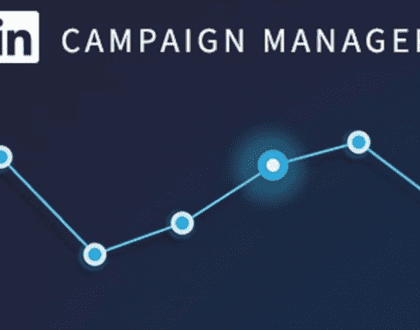Sorry excuses for not doing marketing & 5 social marketing myths busted
by EnyOsung
Sorry Excuses For Not Doing Marketing & 5 social marketing myths busted
Marketing is the fuel that for businesses to get in front of potential customers and be seen. After all, if people do not know about your business and your great products or services, they will not buy from you. You can look at the mistake of overlooking marketing like a car designer designing a car engine without a plan for the fuel that it will run on. Sadly, too many small businesses do not invest enough in their marketing. As a result, many fail to achieve the levels of customers, sales and profits possible.
Whether it is because of excitement about the business idea or inexperience, the truth is that so many entrepreneurs simply do not think about marketing when they are planning to set up their business. This oversight means that they also do not assign sufficient budget to digital marketing. One of the knock-on effects we see as a result is many startups pinning all of their hopes and profit on social media marketing as the panacea for all of their marketing. There is no doubt that expert marketing can help your business to get the right message to the right consumers at the right time, which lead to selling more, faster.
Here we highlight some of the sorry excuses businesses give for not investing properly in marketing. I am all for speaking the truth and supporting small businesses and startups to avoid wasting their already tight digital marketing budgets, so I will also tell you why you should not rely on social media marketing alone by shedding light on the social media marketing myths that plague businesses today.
Background
Susanna Gerber at Social Ms, in an article that is well worth a read even if just for the “they did not say that!” factor, put forward these 7 sorry excuses that businesses hide behind which they have come across in their work:
- We don’t need marketing – we are going to turn viral.
- We will employ an intern.
- We will start marketing when we have revenues and can afford it.
- We do not have time for this right now, we need to build a product.
- We do sales, not marketing.
- We do PR instead of marketing.
- If you do marketing, you are not alternative enough and people won’t like you.
At first glance, these excuses may look like a joke, except that are real reason businesses have put forward for not investing in marketing. Some of the excuses are downright ludicrous, while some are definitely bizarre. If you are thinking along any of these lines, change you thinking right away, otherwise, your business could become the laughing stock.
Understandably, Susanne Gerber advocates social media marketing as the way forward for businesses. She is not alone, as you can see in this Michael Evans quote in Forbes magazine:
“Consider new ways of growing the business, such as using social network marketing to draw traffic to your website and raise brand awareness (start with the biggest ones first: Facebook, LinkedIn, and Twitter). This form of marketing is essentially free and can help you to market your business for very little cost”.
The right digital marketing
I am inclined to agree with Gerber and Evans that social media marketing is useful for businesses, however, it is not the only way to go and it is not always the best route for all businesses. To give you a flavour of my view ask yourself these simple questions:
- How many of your social network fans have completed a purchase from your business?
- How many of your fan or followers are in your purchase funnel?
- Which of your followers/ fans are qualified leads on the road to buying?
- What proportion of your customers are acquired solely from social networks?
The answers to these questions should be simple but when it comes to social networks, the link between followers and sales is much more complicated. Here ere are five reasons why:
1. Marketing is more than just social media
You can’t rely on social media marketing alone because all not all of your target customers will be actively using social networks. Furthermore, those potential customers on social networks have only a tiny chance of going from a social network to your website, as a study by MOZ revealed:
“an average CTR (click-through rate) of the links you tweet is only about 1%” – Rand Fishkin.
Simple maths shows that for every 1,000 followers you have, just ten are likely to click through to your site from social networks, indicating that you need to build your business, brand awareness and customer acquisition on more than social media marketing alone. Other digital marketing strategies like Pay-Per-Click advertising, Search Engine Optimisation, Content Marketing, Email marketing, etc. each have different benefits.
So by relying on any one marketing on its own, you risk missing out on at least some potential customers as well as the associated sales, which could be costly for your business. You need to invest in several digital marketing strategies as well as social media marketing as part of your online marketing mix to get maximum exposure for your business.
Taking the time, effort and costs to develop a digital marketing strategy for your business is always a good place to start to understand the inbound and outbound digital marketing options that may be right for your business – this that will give you the highest return on your invest.
2. Social media is not ‘free’
Evans, in particular, is not correct when he suggests that social media marketing is free. I know that everywhere you look online, there are marketers, experts and more telling you that you can do social media marketing with little or no budget. This could not be further from the truth for two main reasons:
With all the leading social networks now having an advertising platform, unless you spend some money, your posts are unlikely to reach anywhere near as many people as you would like.
Facebook organic reach is at 2% and dropping – International Business Times.
Other social networks are following suit, meaning that unless you pay to advertise, your posts are going no-where. They certainly will not get to anyone who has not ‘liked’ or ‘followed’ your page, meaning that your chance of getting to new customers is no better than zero. If people do not see your posts, there is absolutely no chance they will know about your business, let alone buy from you.
Another evidence that social media marketing is not free is that you can’t rely on interns or just anybody to manage your business’ social network pages. The saying that ‘you get what you pay for is so true in digital marketing that you don’t want to be spend-thrift with your business’ marketing! Your social presence is a window to the world; it is one of the first things many people see about your business, so if you get wrong as many large enterprises have gaffed on social networks, there is no turning back.
Your social network managers need to be skilled at using whatever social network (s) you are on. They must be good communicators, have excellent customer service knowledge and skills, have good skills to build relationships with potential clients and partners. The responsible person should be able to understand and analyse social media analytics so that they can identify what is working or not and why, determine how to optimise the platform for the business’ objectives, etc.
If your company is present on several social networks, your team will need resources and technology like Hootsuite and Postplanner to make their tasks manageable.
Let us be clear: your social media team cannot rely on learning ad hoc from free blogs and podcasts. They will need to be trained and managed, both of which come at a cost, which is an investment in the business. Another option for managing social media pages is outsourcing the function to outside specialists, which also comes at a significant cost.
3. A social network is rarely the place to sell anything
So you have many followers, likes, retweets and favouriting on Twitter and Facebook. This must be helping you to sell more, right? This quote from Relevance‘s Quin Woodward Pu suggests that such social engagement may not be working the way you expect for your business:
“Passive social stats like retweets or likes are simply vanity metrics—they give you no insights into how those stats moved the needle on your bottom line”.
Despite all of the promises about social media marketing that you may have seen, the harsh reality is that people on the social networks do not tend to buy anything, The fact that the vast majority of businesses do not sell on social networks has repeatedly been said , as you will see in these quotes:
“Facebook Likes aren’t sales. Only sales are sales”– Ryan Deiss.
“People aren’t really on [social networks] to hit the “buy now” button. I’m a daily [social network] user and I can’t recall a time this year where I have gone directly from [social network] to an e-commerce website and transacted.” – Alan Coleman
I am optimistic about social networks facilitating much more selling in the future, particularly with Facebook and Twitter moving towards featuring ‘buy now’ buttons that will eventually enable people to make purchases directly on the network without leaving the site. While this step is likely to increase the time users spend on social networks, it may have the unintended negative impact on business websites regarding lower visitor numbers and search engine rankings.
The fact that very few companies sell on social networks does not mean that you should not bother to invest in it, because social networks have their uses, as you will see in the following points.
4. Social media marketing uses
“The various [social channels] may be used for sharing content, or as a customer service tool or for starting conversations with new prospects…use it to interact with customers that already know and love your brand or perhaps those who have a beef with your products and require a solution” – April Whitzman
Whitzman is unequivocal that the real value of social networks lies in the facility to communicate with people, both existing and potential customers.
This table from a recent Trustpilot podcast shows the main business benefits that businesses get in return for their social media investment:
The table illustrates the fact that social media is splendid for brand -building and building engagement in small businesses and startups. Engagement in this sense can be seen as ‘people talking about and interacting with your business’. Users giving positive reviews of their experiences with your company can be included in the engagement category. For a new business, social media’s facility to reach a broad or targeted audience is perhaps unbeatable. You can get a handle on the sentiment (emotional tone and nature of comments) about your brand, and try to influence the conversations. You may even seek to increase the volume of comments about your business, products or services (Share of Voice or SOV) on social networks.
Businesses can use social networks to find out what their competition is doing, the level of interactions they get and the emotional tone that people express about them. This information can be a treasure-trove that you can use to enhance your brand reputation and social presence further by emulating the competition and doing things to take advantage of gaps in the market.
Brilliant use of social networks can enable businesses to introduce new/different products and services to people’s consciousness where they may not have even been aware that they had needs that your business can meet in the first place.
Reputation management is another significant feature of social media marketing that should not be ignored – finding out what people are saying about your business and responding speedily and positively to resolve issues.
For these reasons, a social media presence is not only expected by consumers, but it can also bring real benefits to businesses.
5. Measuring social returns
It may come as a surprise to people to find out that one of the biggest challenges for businesses and marketers today is proving the value of social media marketing on business results, as you can see in this graph:
It has always been notoriously difficult to quantitatively link business results with spend on social networks. We know that the benefits of social networks mentioned in the step above can and do help to get more customers and sell more, probably. As yet, the mechanisms and systems to prove the link between social network spend and direct sales are still being developed. Until these are available and fully implemented, the unbelievable promises that some experts make about social network marketing and returns on the investment may be wide of the mark.
I have nothing but admiration for social media, especially the massive possibilities it gives small businesses in terms of dynamic communication with potential and existing customers, and the ability to go viral. My gripe is the false belief that many experts preach about the massive upturn in profits that small businesses and startups will make instantly by relying on social media alone.
Moving forward
All companies benefit from investing in digital marketing, even those that have a traditional presence like a physical store in one geographic location. Marketing can boost your business by getting your products and services in front of your potential customers who are looking for a company like yours right now. Good marketing can also help your business to stand out from the competition, making it more likely that people will buy from you.
You cannot afford to put your business’ marketing off for another day, sometime in the future. Build marketing investment into your business plan because whichever marketing solution you choose (in-house or outsourced) will require significant investment to get good results from digital marketing work for your business. Avoid the trap of the sorry excuses.
Social media marketing should be part of your marketing mix (used together with other marketing techniques) if you want to reach as many potential customers as possible. The best strategy is to identify the social network (s) that your target customers are using, and then focus your resources on these social networks. However, you should be realistic and clear about the goals your social media presence can achieve for your business. So take the time to find out which other digital marketing techniques can help you achieve your business goals.
Other articles you may like:
Sneaky tricks to double email conversions
Small business’ marketing vicious cycle
Top tips to fill business events
–
Our Digital Marketing Services:
Search Engine Optimisation| Content Development & Marketing| Email Marketing| Pay-Per- Click| Social Media Marketing| App Development & Marketing
HOME | ABOUT | BLOG | TESTIMONIALS
**************************************************************************************************************************************************************************************
smallbiz-emarketing provides expert market research, marketing on all digital platforms and offline advertising consultancy specifically for small businesses and start-ups for whom money is tight. Checkout our services page to see how our digital marketing services can help your business to get more customers and sell more, faster. Also checkout our pricing page to see our genuinely affordable digital marketing packages for small businesses and startups. Why not sign up for our newsletter using the simple form on the right? You can also follow us on social networks. Finally, please share this article with your network using the share buttons below.
**************************************************************************************************************************************************************************************
smallbiz-emarketing would love to have you thoughts about this post. Have you made a fortune selling on social networks? Which digital marketing technique works best for your business? Please leave your comments here.
Recommended Posts

Eny talks with Lydia on The Joyful Path Podcast
9th December 2022

How to use new LinkedIn Campaign Manager
20th July 2022







